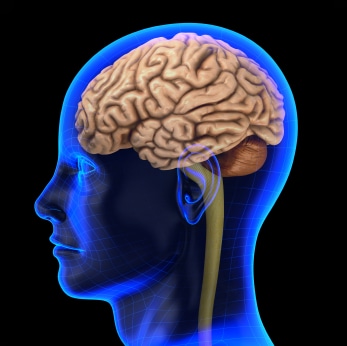Addiction is one of the most hard wired brain diseases that exists , yet people routinely ascribe it to weakness or a lack of willpower. Complicating the issue is the fact that many of the consequences are social ones such as legal charges, financial problems or the impact of the addictive illness in a person’s relationships with friends and family. A patient suffering from alcohol or drug dependence may appear to be rational but when it comes to picking up whether to use or not or whether to tell the truth about what they are doing and how to go about it, they may not be using the rational part of their brain at all.
The Mesolimbic pathway of the brain is responsible for ” drive ” behaviors such as food and sex. The former is necessary to keep the organism alive and the latter to keep the species alive. It is one of the most phylogenetically old pathways in our brain, one we share in common with animals who are far simpler than us such as lizards. In fact you can think of it as the ” lizard brain” , a part of the brain which is wired to work almost purely on instincts. The disease of addition ” hijacks” this pathway , tricking the brain into thinking that the drug , including alcohol is more important than food or anything else in life, maybe even more important than staying alive.
In addiction treatment the person is taught to use their brain’s higher centers, those responsible for rational thoughts and inhibitions, such as the frontal lobe or the cortex to override the ” lizard brain ” when a craving occurs. The craving may be set off by external triggers or romanticized memories of drug or alcohol use. This is why in the therapies most often used to treat addiction such as relapse prevention therapy , there is emphasis on learning simple , easy to remember techniques and rules which are explained and practiced in a repetitive manner. One example is learning to avoid ” people places and things” that are associated with the drug use. This may sound simple but can be a complex socially involved process that can eliminate a person’s entire social life and routines and replace them with new ones.
Yes many people in society believe that addiction is a disease of choice rather than something that happens to us , like clinical depression. While the patient does have to make a choice to get better or enter treatment or go to a 12- step meeting, these are not simple choices such as turning down an invitation to a party or choosing not to buy something or even have a second drink , may be for most of us. The closest those of us who do not suffer from addiction can come to experiencing what it would be like to give up drugs and alcohol completely would be for us to give up all sugar and refined carbohydrates. No one can argue that sugar and refined carbohydrates are necessary foods. Yet we eat them everyday, even though we know they are not good for us. What if you could never eat them again ? No cake, cookies, donuts, bagels white rice, bread that is not one hundred percent whole grain, and no pasta unless it is whole grain. How many of us could really do that for the rest of our lives without slipping up , in a world whee these foods are everywhere?
In many ways having an addictive illness is like having heart disease. It is a combination of genetics and lifestyle choices. Getting better from a heart attack involves medications, maybe surgery but also exercising, eating right and reducing stress. One can go into remission but constant monitoring is needed to make sure that the person stays healthy.
Entering and staying in recovery from an addictive illness can be similar. The patient often enters treatment, either in ” rehab ” ( residential level of care ) where they go away to a program and immerse themselves in treatment and recovery or to an outpatient program where they attend group therapy while living at home , still working and doing other everyday activities.
There are medications available for the treatment of substance uses disorders . They may be long acting opiates themselves ,such as methadone or suboxone
( buprenorhine) , ” anti craving and maintenance of recovery ” medications, like topiramate, acamprosate or naltrexone for alcohol or ” blockers” like naltrexone for opiates or antabuse ( disulfiram ) for alcohol. However they form only a small part of the treatment of the addictive illness. Psychosocial treatments are still the mainstay. These should be done in a specialized treatment program or with a therapist who is experienced and trained in the treatment of addictive illnesses.
In either case, long term aftercare is often crucial to sustained recovery , as is active involvement in a 12-step program such as Alcoholics Anonymous and Narcotics Anonymous . It is not enough to just attend 12-step meetings. The person must also get a sponsor, a peer who has long term recovery and helps others and work through the twelve steps in a personalized manner. AA and NA are free, anonymous, available almost everywhere in the United States and provide a lot of support for the person with an addictive illness to enter recovery.
Sometimes medical students or resident doctors will share that they are uncomfortable asking their patients to attend AA or NA if the patient feels it is too religious. Twelve step programs are spiritual programs at heart , but not religious . I have had patients who are atheists or agnostics who have actively participated and loved being in a 12-step program. I sometimes ask the medical student or resident that if there was a free , widely available way that someone with a different life threatening illness could go into remission for life, from cancer for example , would they be so conflicted .
Addiction is a life threatening illness. It is also a life long illness. However there is significant hope that if a person has the discipline to do all the things needed to go into remission they can successfully go into recovery for life. Making those healthy choices may not be as easy for a person with an addicted brain as it may seem to the rest of the world.
Surita Rao, M.D. is the physician leader of the Behavioral Health Services at Saint Francis Care and host of the show, Mental Health with Dr. Surita Rao on the VoiceAmerica Health and Wellness channel. She completed medical school at Bankura Sammilani Medical College in India and did her psychiatry residency training at St.Vincentâs Hospital in Staten Island, New York and the Yale University School of Medicine. She did her addiction psychiatry fellowship at the Yale University School of Medicine. She has been on the faculty at both Yale and Emory Universities. She is an Assistant Clinical Professor with the University of Connecticut School of Medicine.
Her clinical work has focused on addiction psychiatry, including both substance use disorders and dual diagnosis issues. She has worked with impaired physicians and other health care professionals.
Upon completing her fellowship training, she worked as the Medical Director of the methadone maintenance clinics at Yale University School of Medicine. She has been the Chair of Behavioral Health at Saint Francis since 2002 and is the President of the Saint Francis Behavioral Health Group.
Dr. Rao is on the Board of Directors for the American Society of Addiction Medicine and is co-chair of their national membership committee. She is also on the Executive Committee of the Connecticut Chapter.
Dr. Rao is chair of the physiciansâ health committee at Saint Francis. She also serves on the Board of the Saint Francis Foundation and has been appointed as a Corporator for Saint Francis Care.





